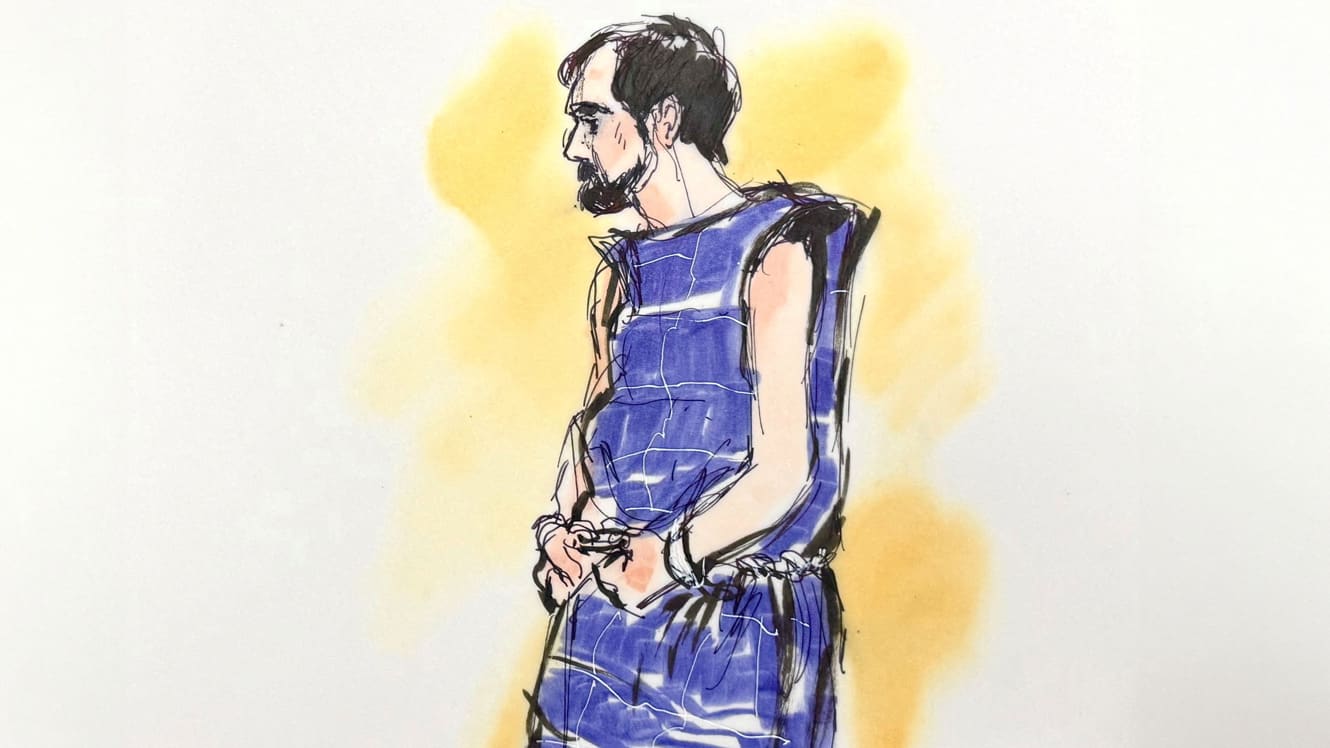Qualified immunity is at the forefront of the debate on policing
Wayne Jones was walking on the side of the road when he was stopped by police in 2013. Jones, a 50-year-old homeless black man diagnosed with schizophrenia, had violated an ordinance in Martinsburg, West Virginia, that requires all pedestrians to use the sidewalk.
When an officer asked if he was carrying a weapon, Jones fled the scene, according to court documents. Officers caught up with Jones and tried taking him into custody. They tased, kicked and put Jones in a chokehold. Five officers surrounded Jones, and when one accused Jones of stabbing him, the officers stood back and ordered him to drop a knife that officers spotted. Jones, who remained motionless on the ground despite the officers' commands, was shot 22 times, the documents said.
"The video was the second hardest thing I had to watch, the first was watching my mother in tears when I told her," Bruce Jones, Wayne's younger brother, told CBS News. "If walking down the street is a crime, the worst that should've happened was they arrested him. They didn't have to form a semi-circle and execute him."
An appeals court recently sided with Jones' family, reviving the case which had previously been denied on grounds of qualified immunity, the legal doctrine that protects government officials from civil lawsuits unless victims can show officers violated "clearly established" constitutional or statutory rights. Jones' case will now go back to the federal district court, a rare second chance for police brutality suits.
Qualified immunity, which the Supreme Court created decades ago, has become a focal point of the debate on policing following the death of George Floyd, who died in Minneapolis police custody in May. Activists believe reforming the doctrine could increase the accountability of law enforcement.
On Capitol Hill, House Democrats recently passed a bill that calls for eliminating the doctrine. Senator Mike Braun, a Republican from Indiana, introduced legislation that would scale back qualified immunity and that says government officials can only claim the protection when they prove their conduct had previously been authorized by federal or state law.
Meanwhile, Republicans introduced a policing reform bill that leaves the issue off the table. Senator Tim Scott told "Face the Nation" amending qualified immunity would be a "poison pill" for getting any legislation passed, and President Trump has threatened to veto any such measure.
The doctrine requires families to find nearly identical cases of excessive force that prove what officers did was unconstitutional. For example, a homeless man in Tennessee sued after a police dog bit him during a 2014 arrest. A previous case found it unconstitutional for officers to deploy a dog if someone surrendered and was lying down. The Supreme Court denied the petition, arguing that it wasn't similar enough because the man, in this case, was sitting, instead of lying on the ground.
The Supreme Court created the doctrine in 1967 to provide government officials a "good faith" defense if they believed their conduct was legal. It was spurred by a case where two Mississippi police officers arrested and jailed 15 priests, three of whom were black, for refusing to leave a segregated bus terminal waiting room in 1961. The group sued for false imprisonment, but the court sided with the officers who said they believed they were preventing imminent violence from a crowd.
Now, advocates of qualified immunity believe eliminating it would subject police departments to frivolous lawsuits and lead to a mass exit of officers from the workforce.
Patrick Yoes, president of the Fraternal Order of Police, testified before the Senate last week, saying the doctrine grants officers the discretion to make split-second decisions when their lives could be at risk. He said his organization, which represents 350,000 members, was strongly opposed to ending qualified immunity.
Jack Collins, a legal adviser for the International Association of Chiefs of Police, said removing the protection would be "counterproductive" toward efforts to create a more accountable system because it would hurt departments' abilities to recruit and retain qualified officers.
"For those bad people, they're not going to be prevented from doing bad, ugly things because you subject every officer to frivolous lawsuits," he added. "Abolishing qualified immunity is just a really false effort by people who are frustrated, with good reason, at some bad cops, but you don't throw the baby out with the bathwater."
Joanna Schwartz, a professor at UCLA Law, said weak cases against officers are often weeded out by the system. According to her study of nearly 1,200 lawsuits, fewer than 4% of the cases were dismissed on qualified immunity grounds. Experts said other factors often kill cases before the doctrine can even be invoked, including procedural barriers and challenges to bringing claims in the first place.
Bruce Jones believes the "system isn't made to work" for people who can't financially afford to go up against police. He said he hopes the prospect of a long legal battle doesn't deter other alleged victims of police brutality from taking action.
"I would tell them if they still have a chance to fight for justice, fight for justice," he added. "Unfortunately, even sometimes when there's a camera you can't get justice because there's always an excuse or an explanation, but never give up fighting for your rights."
Melissa Quinn contributed to this report.



